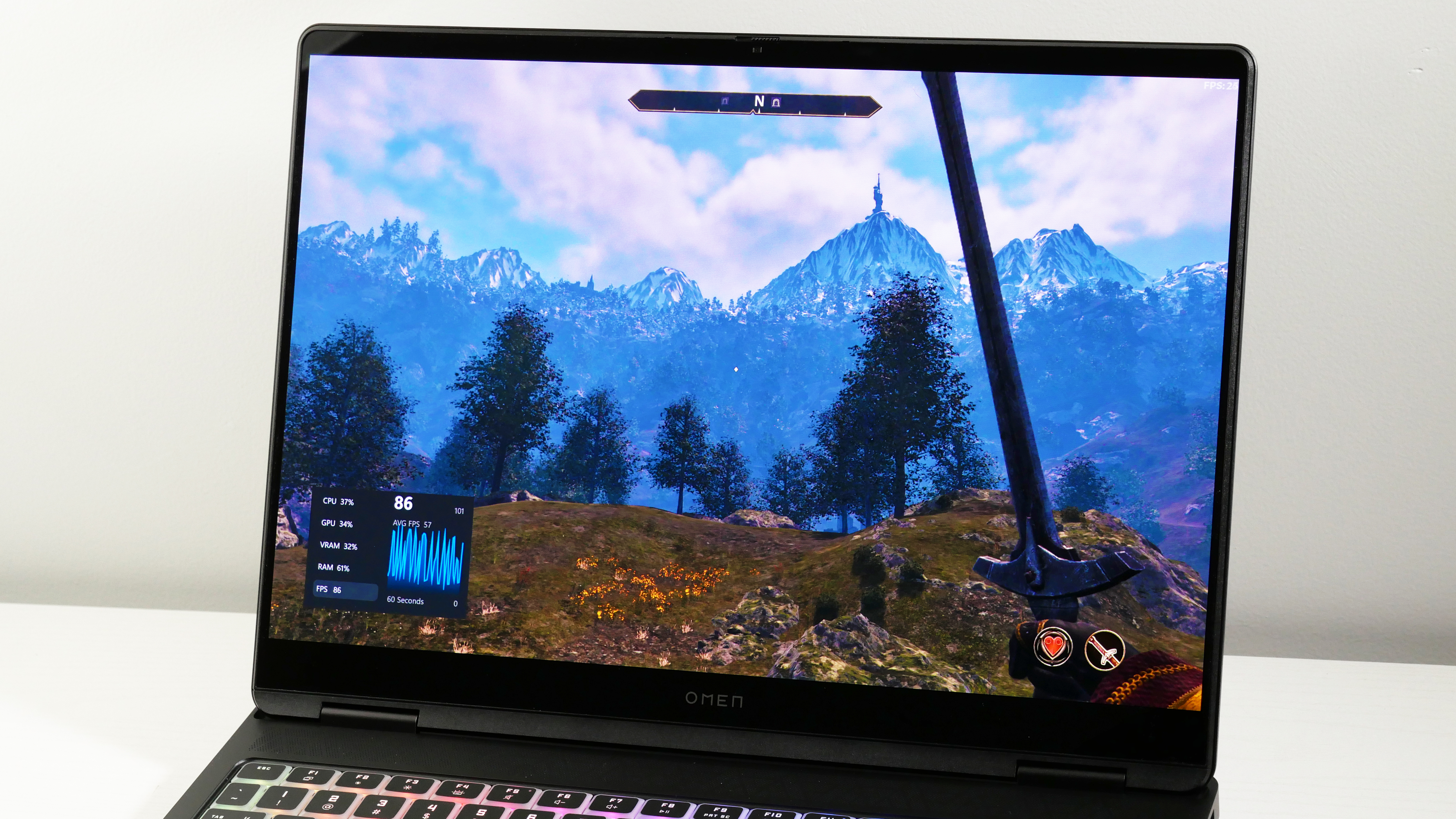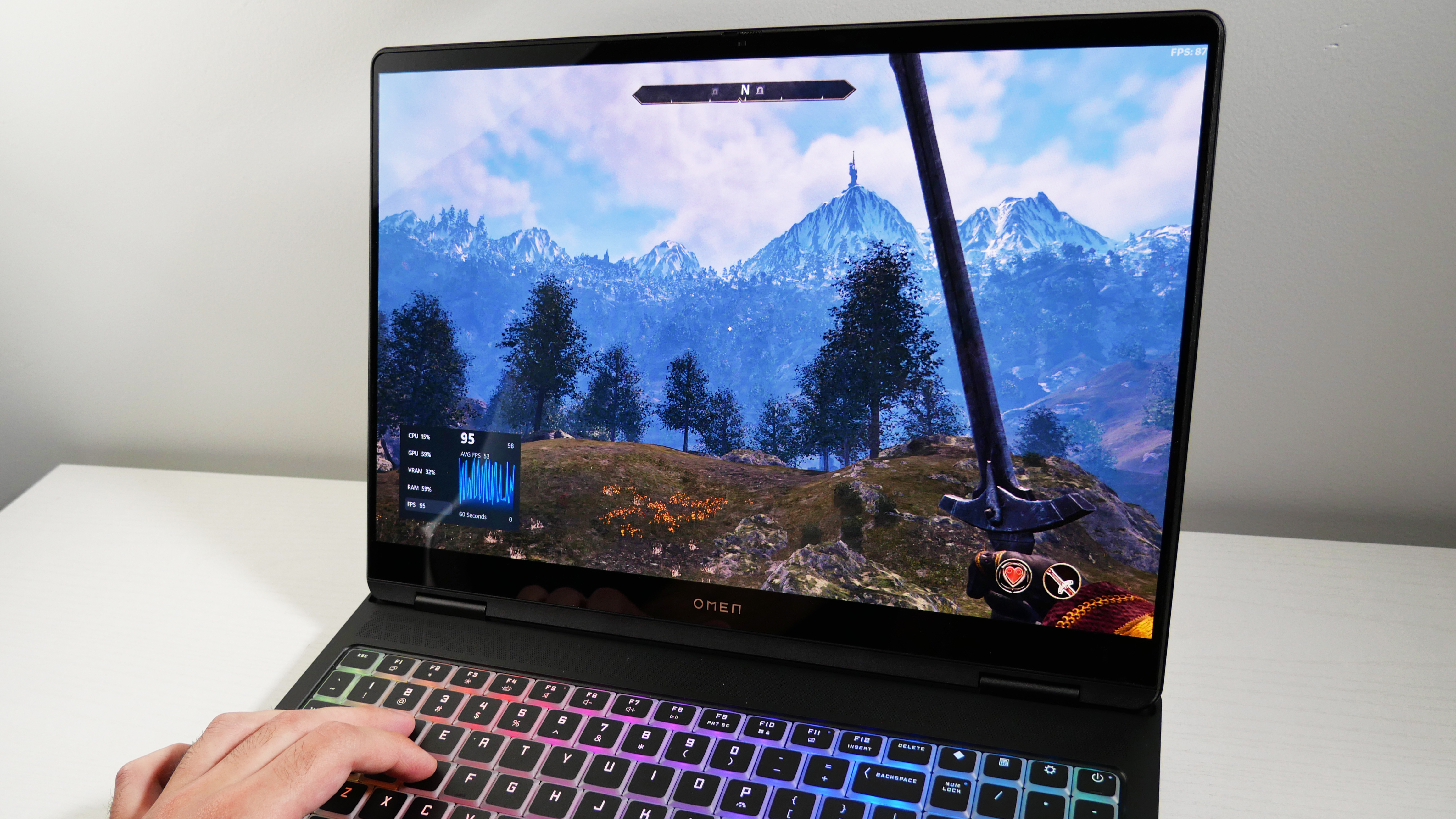
The Elder Scrolls IV Oblivion: Remastered is out right now! Even with the rumors, the last thing I expected was The Elder Scrolls IV Oblivion getting a full remaster while Bethesda is still cooking on The Elder Scrolls VI, yet Bethesda revealed and launched this title the same day.
Bethesda also revealed that it isn’t the developer of this remaster; it’s Virtuous. They co-developed Cyberpunk 2077 and are currently co-developing Metal Gear Solid Delta: Snake Eater.
I could barely get past all the new features they listed, from the overall visuals and interface to the combat animations and sprinting. Naturally, I jumped at the chance to test it on the HP Omen Max 16, an RTX 5090 gaming laptop.
Here’s how it went.
My name is dibble and I’m here to slay
I don’t think I’ve ever made a character so fast in my life. His name is dibble, and I will not take any questions.
But enough about dibble, let me tell you about my immediate reaction to playing The Elder Scrolls IV Oblivion: Remastered on an RTX 5090 gaming laptop.
Right away, I maxed out all the settings, including ray tracing, set to 2560 x 1600. I started without Nvidia’s DLSS to see how the game performed on raw performance alone.
I popped into my cozy cell and ran through the first (longer than I remember) dungeon, averaging roughly 40 to 50 frames per second. However, as soon as I got out of the sewers and into the open world, the frames dropped down to an average of 35 frames, occasionally dipping below 30 fps.
Disregarding DLSS for now, that’s a pretty rough start. You’re telling me that the most powerful laptop GPU can’t even manage 60 fps on max settings in the remaster of a game that originally launched nearly two decades ago? That’s not a good look.
Now, when I enabled DLSS, that’s when things changed. I turned on DLAA, which is a mode of DLSS that focuses more on image quality instead of performance. I also turned on Multi Frame Generation and noticed a significant improvement. Earlier, I averaged 35 fps while exploring the open world, which jumped to 57 fps. To realize its full potential, I switched the DLSS setting to Ultra Performance, and it eked out an average of 125 fps. Wild, right?

Unfortunately, this just supports the case that the introduction of DLSS 4, or any interaction of super sampling technology, has become a support beam for game developers and GPU manufacturers to rely on.
It’s wild to me that for over five years now, developers have been aiming for that 4K/60fps sweet spot. But that can’t happen on max settings, or that can’t happen without DLSS. One of the two must be true. And sometimes, they can’t happen when both are in play.
Don’t get me wrong, I am so hyped up to take my baby boy dibble (I’m deleting this save file) across the plains of Cyrodiil, but it just seems unfathomable that even with the most expensive gaming device I could buy (thank the divines I did not), that I cannot even manage 60 fps at max settings.
This paints a pretty bleak future for the gaming industry if something doesn’t change. And for funsies, I threw everything on low, 1080p, no ray tracing, Ultra Performance, and averaged 236 frames per second. That is a lot… but I’ll be honest, it’s not as high as I was expecting it to go.
Anyway, I’m going to jump into an Oblivion gate now. Whether that’s in reference to real life or the great province of Cyrodiil, I’m not telling.






